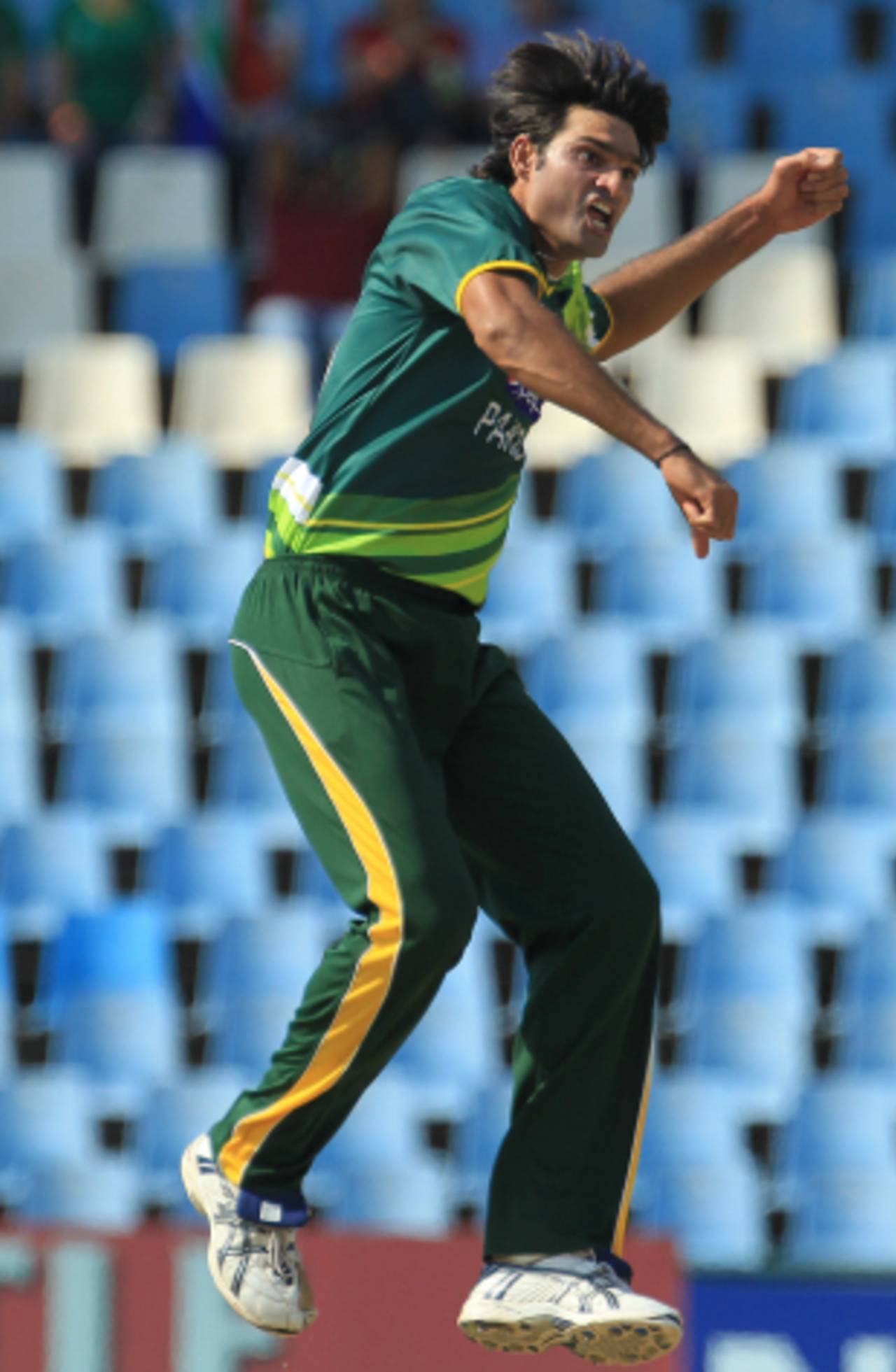Pakistan chief selector,
Iqbal Qasim, said that the team was still undergoing a rebuilding process and what was perceived as an inconsistent selection policy was actually a "tactical move" to test young talent. While admitting that cricket in Pakistan was facing a crisis, Qasim said that the selectors were looking at grooming cricketers to help the side overcome a transition phase.
"Realistically, we do not have a quality pool of reserve players," Qasim said in an exclusive interview with ESPNcricinfo. "Most of the spots within the playing XI are not fixed and players are not doing enough to retain their place. We are giving them opportunities, but they have to raise the standard of their game and grab their chances. A good player doesn't wait for the second chance and we need players who can fill in for the best players at every slot."
Qasim said that handling a transition phase was difficult for all teams in cricket, irrespective of their past performances. "It happens everywhere, even Australia" he said. "We are trying to look for young cricketers, but the situation in domestic cricket is not encouraging. Critics talk about the inconsistent selection but the other side of the argument is that we have to try different combinations until we find the best prospects for Pakistan. Our job as selectors is to pick the best player and it is the player's job to hold on to his place by performing well."
Qasim's remarks about a transition phase come soon after Pakistan's disappointing tour to South Africa. They lost all matches of the three-Test series and while their performance improved in the one-dayers, it still wasn't good enough for them to win the series. The re-emergence of Mohammad Irfan, who still needs to work on his fitness, was the only positive from the tour.
The team has been known for world-class fast bowlers, such as Sarfaraz Nawaz, Imran Khan, Wasim Akram, Waqar Younis and Shoaib Akhtar. Pakistan have been struggling in recent times. Since Mohammad Asif and Mohammad Amir, the Pakistan selectors have brought in 10 bowlers and only Junaid Khan and Irfan have established themselves as long-term prospects.
Similarly, in the batting line-up, the selectors have failed to find a prolific batsman in the mould of Mohammad Yousuf, although dozens of batsmen have been given chances. Two youngsters, Umar Akmal and Asad Shafiq, have shown potential but they are yet to win a permanent place in the side.
Kamran Akmal has handled wicket-keeping responsibilities over the last five years, even as the selectors have tried Zulqarnain Haider, Sarfaraz Ahmed, Mohammad Salman and Adnan Akmal. Kamran is considered the best wicket-keeper batsman for Pakistan in limited-overs cricket but the Test slot is still unsettled. The selectors recently identified Mohammad Rizwan from Peshawar as a prospect but the youngster is still waiting for a chance to prove his case.
"We want stability in a player's performance so that we can look at the long term," he said. "Unfortunately, they lack consistency and are neither helping us nor themselves. We have a great history of producing world-class players who ruled the world. We have to be patient and sooner or later, we will definitely have a greater depth of quality players in our system again. We have marked future prospects like Haris Sohail, Junaid Khan and Ehsan Adil and we are looking for quality players to fill each slot."
Qasim said his role was limited to selecting players, not developing them. He also said that the lack of international cricket in Pakistan was a setback. "Players aren't thriving. Playing domestic cricket is okay but they need exposure to international cricket at the Under-19 and A-team levels. This is how a player is developed for international cricket. We are picking a raw player who may have performed at the domestic level but has never been tested against quality teams around the world before being selected for the national team."
Pakistan are currently ranked No. 5 in ICC Test rankings, No. 6 in ODIs and No. 4 in T20Is. Their highest position in Tests came in 2007, when they made it to No. 3. Qasim was reluctant to predict whether the team would reach the No. 1 ranking . "I can't say whether we can achieve the No. 1 position with the players we have in the team, but I can be optimistic about it."
Pakistan recently dropped senior batsman Younis Khan and had also dropped Shahid Afridi from the ODIs in India last year. While Qasim said dropping a senior member was painful, there was no culture of a rotation policy in Pakistan.
"It doesn't fit here as players are insecure, they never would want to be rested," Qasim said. "The present crop of players are in rebuilding process and we are trying to form a good combination. We are in fact in no position to rotate players as the phenomena isn't feasible in our culture. Players start obsessing about their place rather than giving their best."
The selectors are currently facing the challenge of trimming down the 30-member list of probables for the Champions Trophy to 15. The same squad is expected to play the ODI series against Scotland and Ireland in May. Form and fitness are the major concerns for the selectors.
Umar Farooq is ESPNcricinfo's Pakistan correspondent. He tweets here
